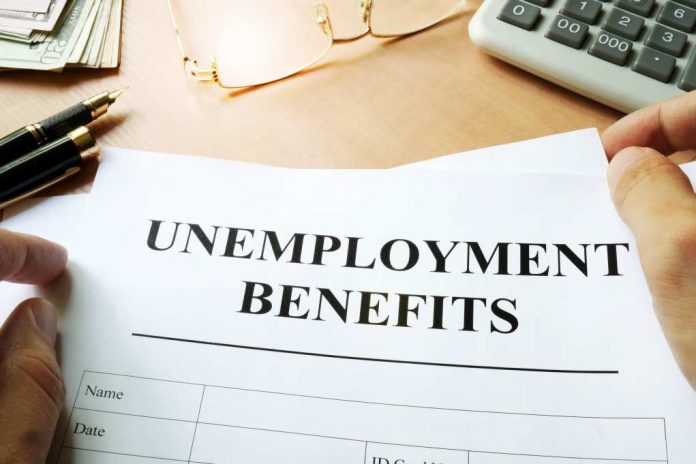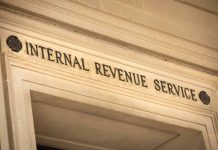
No matter how frugal you are, losing your job is a financial killer! If you have been laid off due to the pandemic’s economic fallout, then perhaps this is the time for you to think about how you want to move forward with your personal budgeting strategy. Unemployment benefits have been a financial lifeline for many Americans who have lost their jobs. The problem is that not every single one of them knows how to make the most of the benefits that they have. There are so many ways that you can maximize your benefits and prepare for everything to come. Since no one knows when the apocalypse is coming, let us assume it is not next week.
Losing your job can negatively affect you both mentally and physically. You might find yourself down in the dumps. Also, you might find that you will need to cut out luxurious things that you thought you needed. This is only natural, but we might be able to help. If you have lost your job and you’re still wondering about how you can maximize the impact of your benefits, then we have got a couple of tips that you might be interested in.
Prepare Yourself to Pay Taxes
The way you deal with unemployment taxes can vary. Typically, individuals will be able to decide to have their taxes withheld when they first sign up for unemployment benefits. Additionally, people can fill out and provide a Form W-4V. This form is a Voluntary Withholding Request. It will go to the agency that’s disbursing the unemployment benefits and requests to begin withholding their taxes. You can expect to flat out put 10% of your unemployment taxes at minimum!
Get Ready for Some Budget Changes
If you have unemployment benefits, that means that you will have to spend more on essentials and less on indulgences. In other words, you need to do your best to make sure that your funds will last. Hence, it is best to prioritize rent, utilities, food expenses, and health/medical costs as well. Try to postpone paying back your credit card debt, so that you can focus more on what’s more important. While it may sound crazy to remain in debt, it can help you manage your current financial situation. In addition, if you have to go shopping, take note that sometimes saving is not only about what you shop for, but rather where you shop. Experts recommend going to low-cost grocery stores or 99 cents stores to get all the essentials that you need.
This means that you have to select where you want to shop, in order to maximize your benefits and save more money. Before you start thinking about buying the really good cheese, you should think about what you need first. By living off of a bone-dry budget, you will be able to keep more of the unemployment benefits in your wallet.
Your Rent Will Come Back to Haunt You
Unemployment can be difficult to deal with. If you don’t have all the rent that is due, then your situation is about to get very unpleasant! We suggest that you discuss a payment plan with your landlord as soon as possible. The payment plan will allow you to pay your back-tracked rent in installments, rather than all together. The best course of action would be preparing yourself, financially, for your rent payments before it backfires.
Having an Emergency Fund is Essential
Whether you have a job or not, you should always be putting money aside for a rainy day. It may surprise you that you could have some money left, even while you’re on jobless benefits. The best thing to do in this situation is that you do not spend it! An emergency fund is essential, no matter what your financial situation is. It will give you the safety net that you will need to live off of by the time your unemployment benefits expire. You do not want to put yourself in a situation where you are sick and you cannot afford to get medicines.
You will want to be prepared for whatever it is to come next. The best way to do that is by keeping some of your money on the side. You will not have to put aside half a million dollars, but you will need to put aside a little something. This will help you when the time comes and when you are in a tight spot, this will be your last resort.
Yes, Banks Can Actually Be Understanding. (It’s Hard To Imagine, But It Is True)
In most situations, your unemployment benefits may not be enough to pay all your bills. You may be able to get into a hardship agreement with your bank or your credit card company. It is possible for you to negotiate a more suitable payment plan. This will help you to settle your outstanding debt. Now, that’s called compassionate capitalism! It is possible that banks are not heartless and actually want to help you out.
Even though it does not seem like it, banks can be very understanding. You have the option of negotiating your way into a payment plan. This means that you can discuss with the bank on methods to pay your debt through installments that suit your financial situation. Also, you can discuss with your bank on different payment plans that can suit both of you. You never know, you might come out on top. (If you play it right, it might be a win-win situation for you and your bank. It’s possible.)
Think About Applying for Extended Benefits
Unemployment benefits are a temporary solution, but you can always ask for an extension. You will find that most states will offer you an extension of 26 weeks. Some states, on the other hand, could offer 13 weeks or fewer. There are a few key aspects that could help you extend your unemployment benefits for an additional 13 weeks or more. These aspects are if:
– You finished your regular unemployment benefits
– You’re still unemployed and looking for a job
– The state you are living in experiences high levels of unemployment
However, this depends on the state you are living in and your current financial situation. You should not think twice about applying, since this will help you in the long-run. An extension in unemployment benefits will provide you with more money, which will encourage you while you’re looking for a job. Extensions exist for special cases that need additional benefits. If you are one of those special cases, then it will not hurt you to apply. You never know, maybe the extended unemployment benefits will give you the push you need for a better life. (Well, you never know. You should be positive in these sorts of situations.)
How Do I Apply for Unemployment Benefits, Anyway?
According to the Department of Labor, unemployment benefits are provided for “eligible workers who become unemployed through no fault of their own and meet certain other eligibility requirements.” In order to receive unemployment benefits, you will need to file a claim with your state’s unemployment insurance program. Claims can be filed in person, through the telephone, or online. But, this depends on the state where you are staying in. You should apply for unemployment benefits with the following steps:
– First, you should contact your state’s unemployment insurance program. You should do this as soon as possible after becoming unemployed.
– Typically, you should file your claim with the state that you were working in. You may have worked in a different state than the one where you live or lived in multiple states. If you have, then the state unemployment insurance agency of your current state can provide data on how you can file your claim in other states.
– When you are filing a claim for unemployment benefits, the unemployment insurance agency will ask for certain information. This could include addresses and dates of your previous employment. If you want to make sure your claim is not delayed, then be sure to give complete and accurate information.
– Normally, it takes two to three weeks to receive your first unemployment benefit check after you apply for your unemployment claim.
Conclusion
In conclusion, you should consider maximizing your unemployment benefits as much as possible. You should make sure to keep an emergency fund and stick to a bone-dry budget. On top of that, you should sit down with your landlord to discuss a suitable payment plan. Also, you should negotiate with your bank on a payment plan for your outstanding debt. Even though these are trying times, you might find comfort that you are not alone and that this phase is only temporary!
















